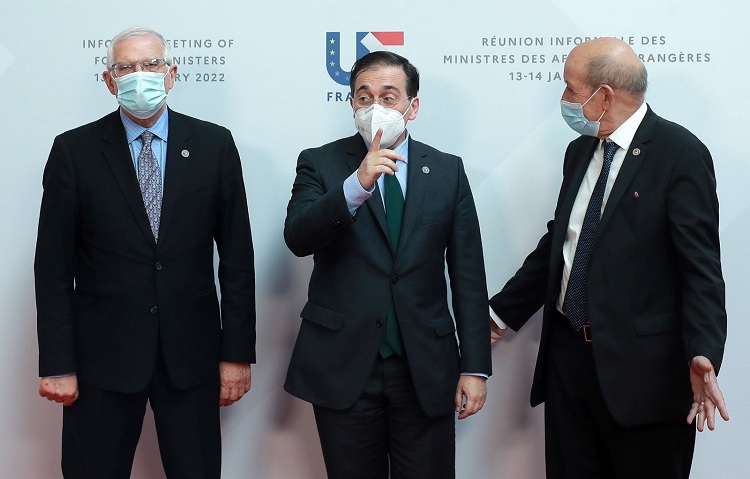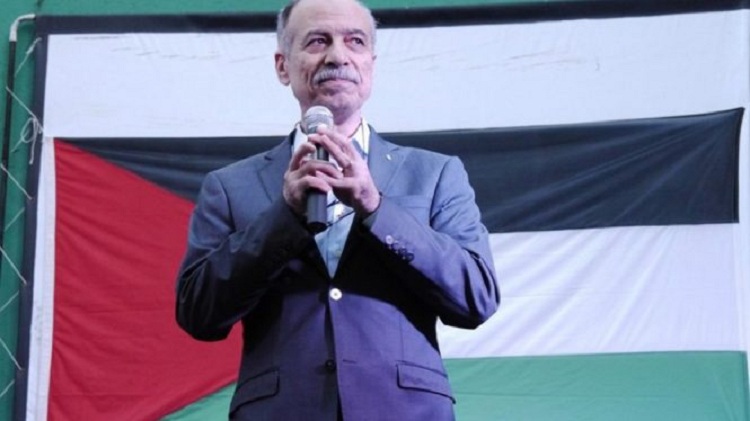The Diplomat
The Minister of Foreign Affairs, José Manuel Albares, warned yesterday that Russia has no right to prevent NATO’s expansion towards Eastern Europe because Moscow “cannot impose on a country the security scheme it has to have, nor can it impose on an organization whom it accepts or does not accept”.
On January 13 and 14, the French city of Brest hosted the meeting of the informal Council of Foreign Ministers (colloquially known as Gymnich) at the invitation of the head of French diplomacy, Jean-Yves Le Drian, whose country holds the rotating presidency of the Council of the EU.
Four main topics were discussed at the meeting: the EU Strategic Compass, the European Defense “white paper” for 2030; the security situation in the European Union’s eastern neighborhood, particularly in Ukraine and Belarus; the relationship between the EU and China; and the African Union-European Union Summit on February 17 and 18. Apart from that, as Albares explained in his Twitter account, the ministers discussed the nuclear agreement with Iran and the situation in Mali and the head of diplomacy himself reiterated “Spain’s commitment to vaccination against COVID and malaria”.
In any case, the Gymnich was largely starred by Russia, including Moscow’s attempts to prevent NATO expansion in Eastern Europe. “Russia wants to break us up, but we and the United States do not want to play and do not play these games,” EU High Representative Josep Borrell said Thursday before the start of the meeting. The same issue was addressed last January 13 in Brussels by the Russia-NATO Council, where Moscow demanded that NATO stop admitting new members and that the Alliance withdraw its forces in the east. In response, the allies reaffirmed “the right of each nation to choose its own security arrangements” and made it clear that they “will not give up their ability to protect and defend each other, including with the presence of troops in the eastern part of the Alliance.”
“Russia cannot impose on a country the security scheme it has to have nor can it impose on an organization whom it accepts or does not accept within its membership,” José Manuel Albares said yesterday in statements to Efe news agency after speaking at the Gymnich and after Russian Foreign Minister Sergey Lavrov warned Washington and NATO that Russia “is not going to be waiting forever” for a “written” answer to its claims on security in Europe.
“Russia has to understand that dialogue and negotiation are two different things” and that “it is not because one puts forward conditions that they are immediately accepted, especially when they are unacceptable,” added the minister, who pointed out that the rest of his colleagues had agreed in their “rejection of a return of spheres of influence” similar to the Cold War.







